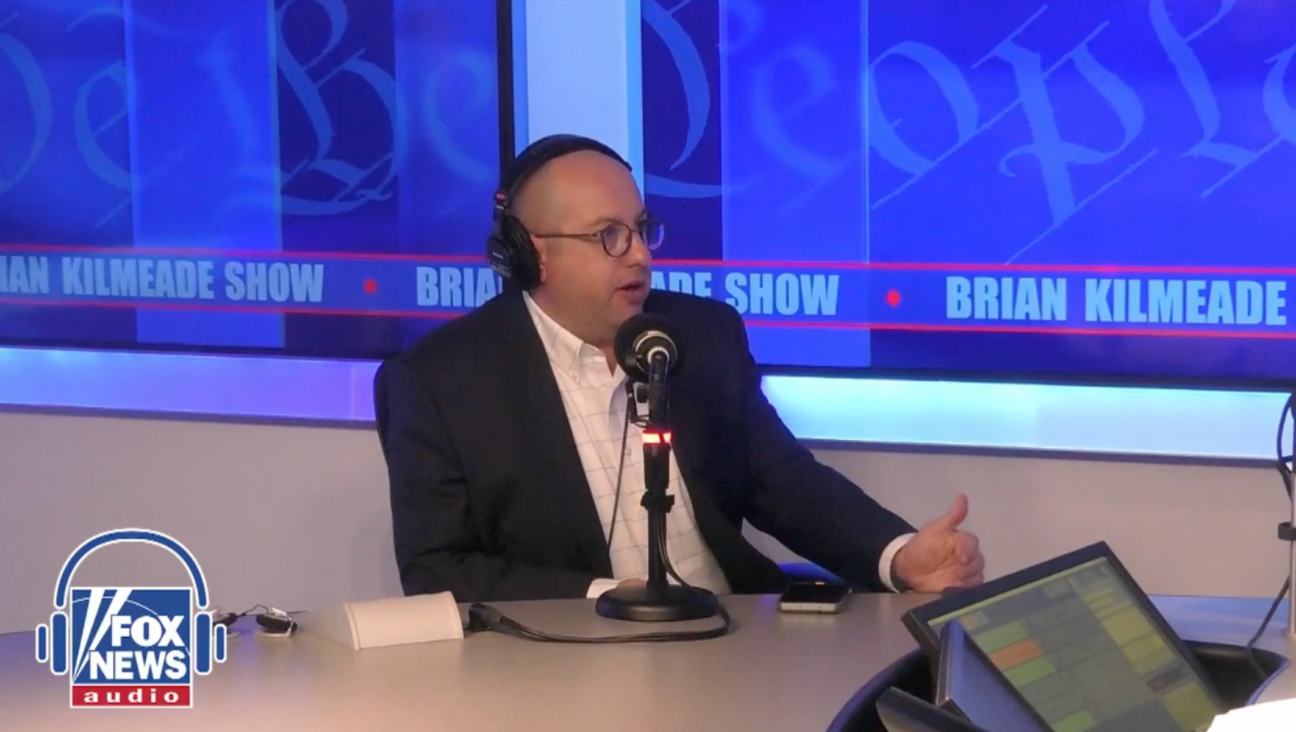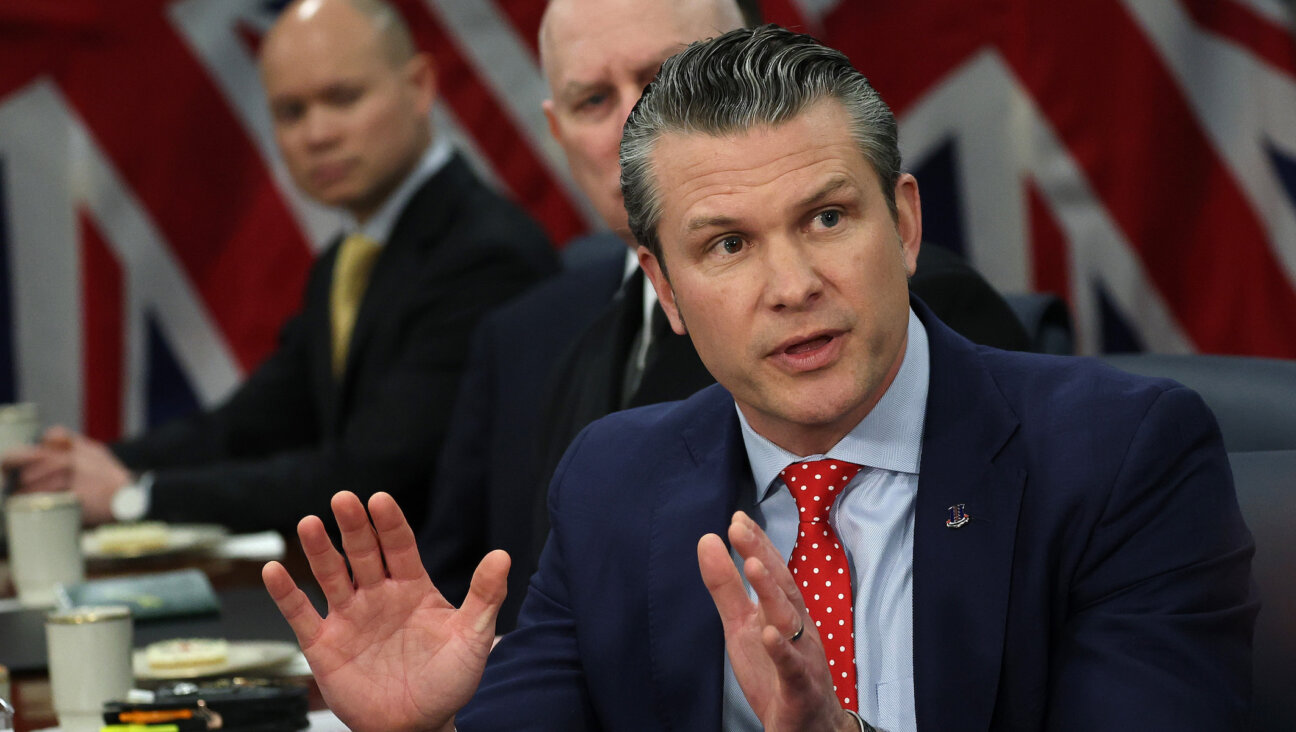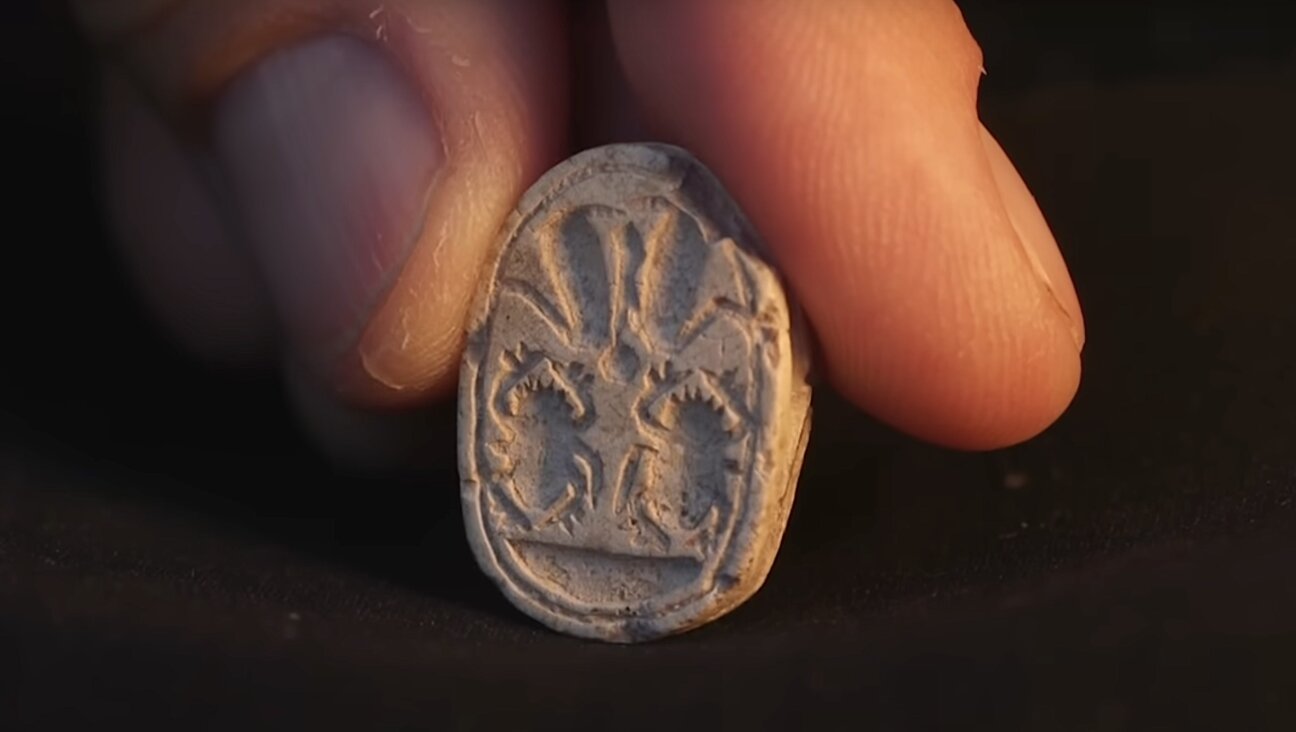‘The Simpsons’ Tackle Jewish Intermarriage
Twenty seasons, 450 episodes, 23 Emmy Awards — and it all led up to a story line about Jewish intermarriage.
“The Simpsons” celebrated two decades on television January 10, airing a celebrity-packed episode that skewered long-standing targets, such as the show’s nuclear power plant and patriarch Homer Simpson’s obsession with doughnuts. In a jab at those who would tinker with the long-running series, the episode’s plot is set in motion by meddlesome TV executives who force the show’s favorite burned-out entertainer, Krusty the Clown (born Herschel Shmoikel Pinchas Yerucham Krustofski), to add a new co-host to his children’s after-school TV program.
Despite initial tensions, Krusty soon hits it off romantically with the sidekick, Princess Penelope, voiced by “The Devil Wears Prada” star Anne Hathaway.
The pair’s wedding plans generate pointed ambivalence in Krusty’s father — long familiar to fans as Rabbi Hyman Krustofski — who can’t quite restrain himself while performing the ceremony. “Friends, loved ones,” says the rabbi, voiced by Jackie Mason, “we are gathered here today to marry a Jew and — a Congregationalist? Is that even a thing?”
Following an interruption by Bart Simpson — who reveals that he has locked a monkey in the synagogue’s “Torah room” — the ceremony is called off, only for a distraught Krusty to follow his beloved to Paris for a reunion. Although she hasn’t converted, Princess Penelope reveals her appreciation for Krusty’s Jewish roots, proclaiming him her “Borscht Belt baby” in the episode’s closing scene.
Krusty, who had a midlife bar mitzvah ceremony in a 2003 episode titled “Today, I Am a Clown,” expresses satisfaction that sounds Yiddish. As the pair floats down the Seine, he declares, “I’d rather be a happy shnook than a noble shlumpf.”
The Forward is free to read, but it isn’t free to produce

I hope you appreciated this article. Before you go, I’d like to ask you to please support the Forward.
At a time when other newsrooms are closing or cutting back, the Forward has removed its paywall and invested additional resources to report on the ground from Israel and around the U.S. on the impact of the war, rising antisemitism and polarized discourse.
Readers like you make it all possible. We’ve started our Passover Fundraising Drive, and we need 1,800 readers like you to step up to support the Forward by April 21. Members of the Forward board are even matching the first 1,000 gifts, up to $70,000.
This is a great time to support independent Jewish journalism, because every dollar goes twice as far.
— Rachel Fishman Feddersen, Publisher and CEO
2X match on all Passover gifts!
Most Popular
- 1

News A Jewish Republican and Muslim Democrat are suddenly in a tight race for a special seat in Congress
- 2

Fast Forward The NCAA men’s Final Four has 3 Jewish coaches
- 3

Film & TV What Gal Gadot has said about the Israeli-Palestinian conflict
- 4

Fast Forward Cory Booker proclaims, ‘Hineni’ — I am here — 19 hours into anti-Trump Senate speech
In Case You Missed It
-

Fast Forward Jerusalem Post editor Zvika Klein, arrested in ‘Qatar-gate,’ says he’s being unfairly prosecuted for his reporting
-

Fast Forward Trump fires national security officials, reportedly at urging of Laura Loomer, far-right Jewish ‘Islamophobe’
-

Fast Forward Display honoring Jewish women graduates of naval academy removed ahead of Hegseth visit
-

Yiddish טשיקאַוועסן: מיידעלע געפֿינט 3,800־יאָריקע קמיע לעבן בית־שמש, ישׂראלTIDBITS: Little girl finds 3,800-year old amulet near Beit Shemesh, Israel
אַן עקספּערט פֿון פֿאַרצײַטיקע קמיעות האָט באַשטעטיקט אַז די קמיע איז געלעגן אויפֿן אָרט פֿונעם אַמאָליקן לאַנד כּנען.
-
Shop the Forward Store
100% of profits support our journalism
Republish This Story
Please read before republishing
We’re happy to make this story available to republish for free, unless it originated with JTA, Haaretz or another publication (as indicated on the article) and as long as you follow our guidelines.
You must comply with the following:
- Credit the Forward
- Retain our pixel
- Preserve our canonical link in Google search
- Add a noindex tag in Google search
See our full guidelines for more information, and this guide for detail about canonical URLs.
To republish, copy the HTML by clicking on the yellow button to the right; it includes our tracking pixel, all paragraph styles and hyperlinks, the author byline and credit to the Forward. It does not include images; to avoid copyright violations, you must add them manually, following our guidelines. Please email us at [email protected], subject line “republish,” with any questions or to let us know what stories you’re picking up.















